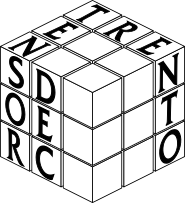Who we are
Current members
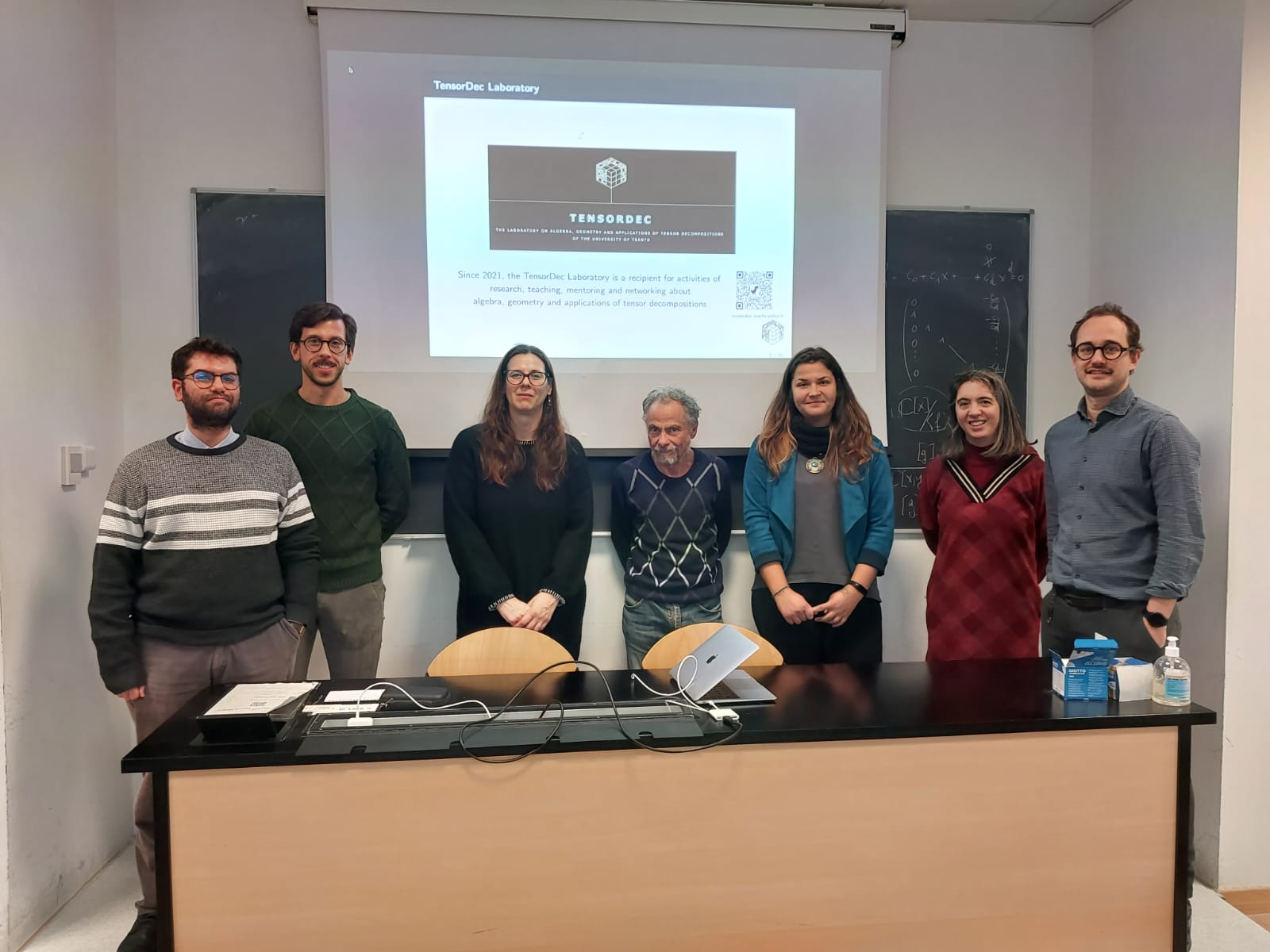
November 2023
Current Postdoctoral Students
-

Maciej Gałązka
started in March 2024
-

Pablo Mazòn
started in March 2024
Current Graduate Students
-
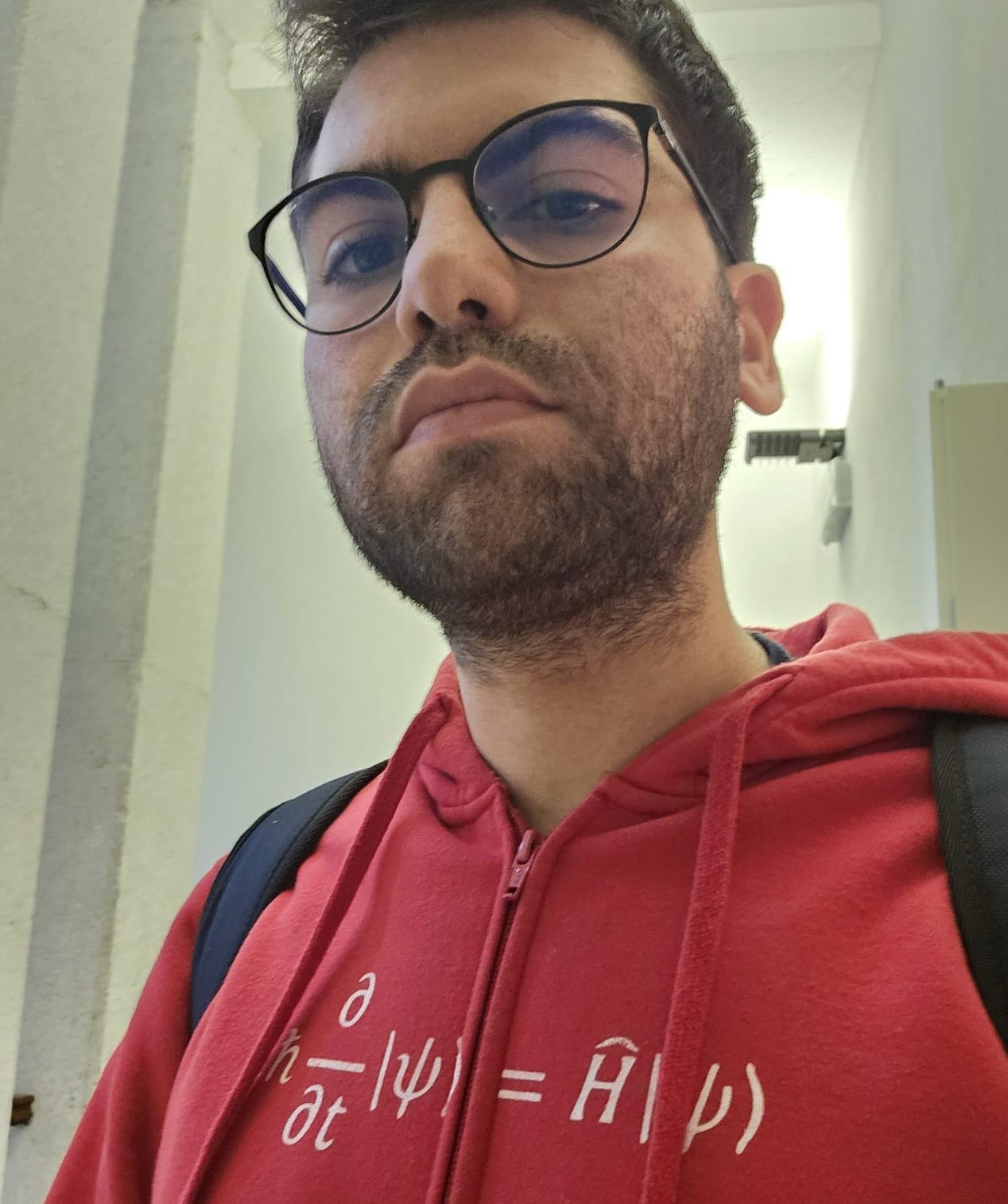
Dario Antolini
started in November 2023
-
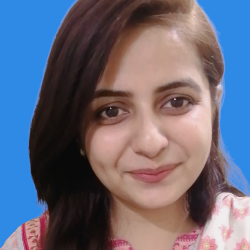
Asma Momal
started in January 2024
Former PostDocs
-
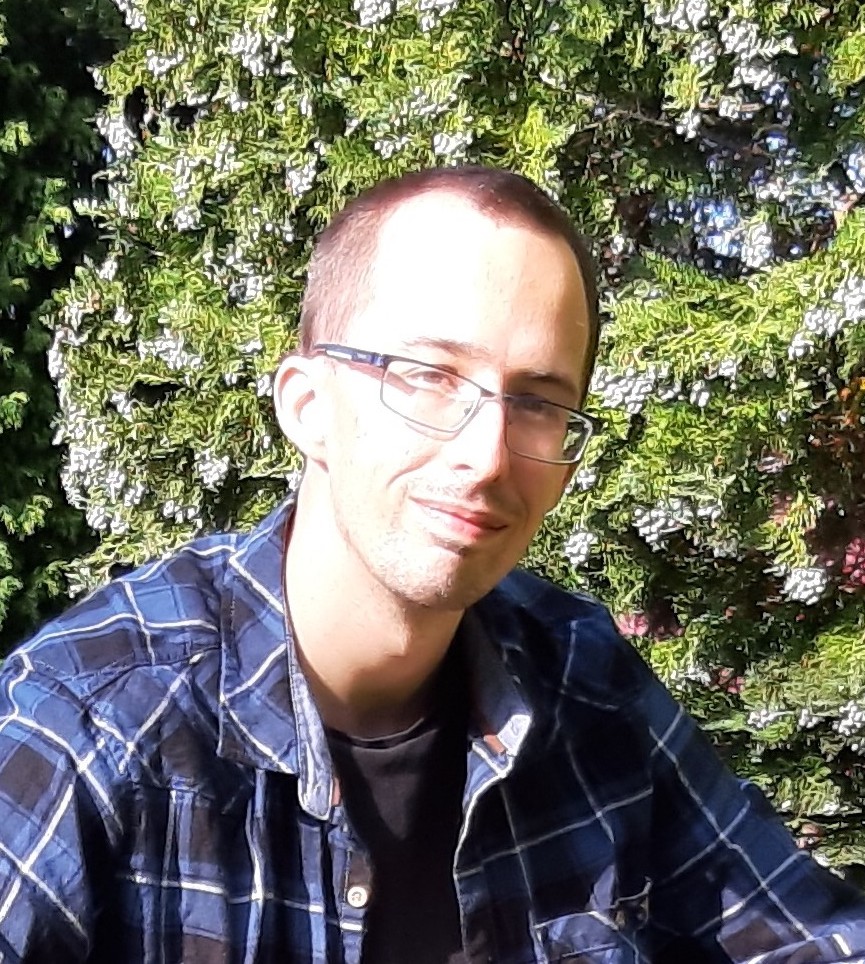
Tomasz Mańdziuk
Post-doc (2023-2024)
-

Alex Casarotti
Post-doc (2021-2023)
Former PhD students
-
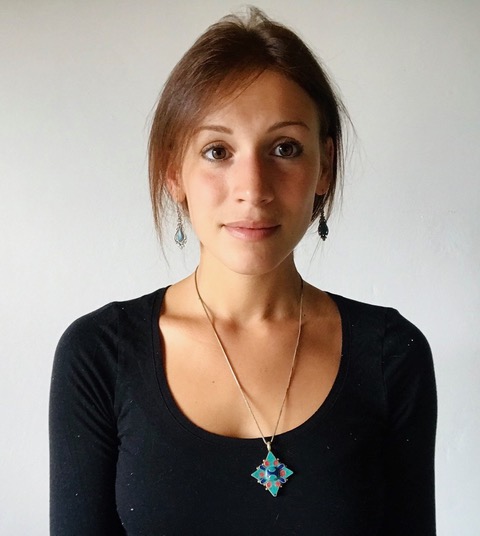
Valentina Amitrano
Digital Quantum Computing for Many-Body Simulations
Supervisors: Francesco Pederiva, Alessandra Bernardi
PhD defense (in Physics): 13 December 2023
-

Vincenzo Galgano
Secant varieties of Spinor varieties and of other generalized Grassmannians
Supervisors: Alessandra Bernardi, Giorgio Ottaviani
PhD defense: 18 December 2023
-

Claudia De Lazzari
Algebraic, geometric and numerical methods for Tensor Network Varieties
Supervisors: Alessandra Bernardi, Iacopo Carusotto
PhD defense: 7 December 2022
-
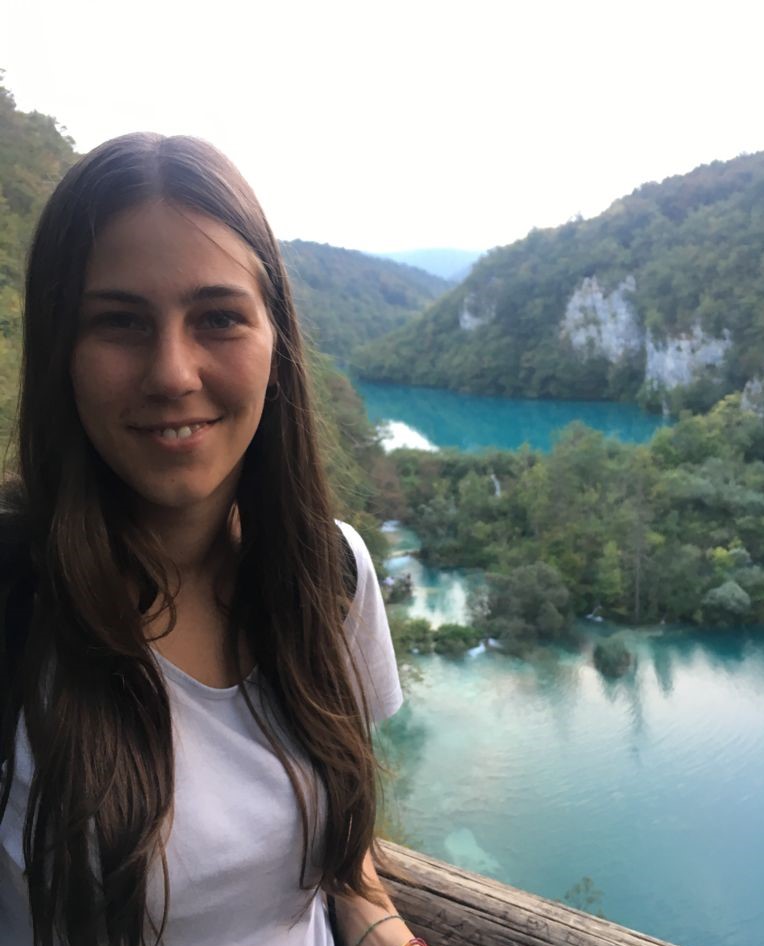
Pierpaola Santarsiero
Identifiability of small rank tensors and related problems
Supervisors: Alessandra Bernardi, Edoardo Ballico
PhD defense: 1 April 2022
-
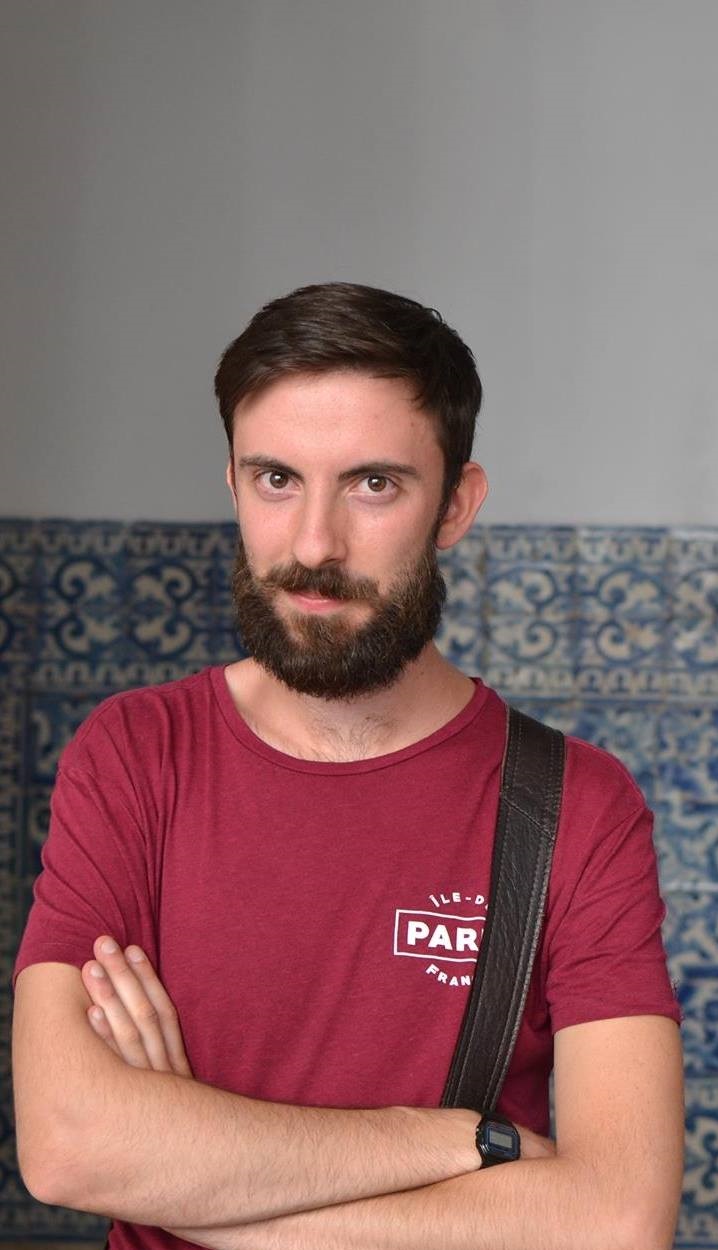
Reynaldo Staffolani
Schur apolarity and how to use it
Supervisor: Alessandra Bernardi
PhD defense: 14 February 2022
Former Master students
Simone Patscheider
Geometric Measure of Entanglement via Tensor Decomposition
Supervisor: Alessandra Bernardi
A.Y.: 2022-2023
Surbhi Malhotra
Multi-omics integrative analysis via tensor decompositions
Supervisors: Mario Lauria, Alessandro Oneto
A.Y.: 2022-2023
at CIBIO - Dept. Cellular, Computational and Integrative Biology (U. Trento)
Giulia Bazzucco
Multivariate function approximation via Chebyshev interpolation and Tucker decomposition
Supervisors: Alessandro Oneto, Nick Vannieuwenhoven (KU Leuven, Belgium)
A.Y.: 2021-2022
-
Davide Tezza
Design automatization of Quantum Machine Learning algorithms
Supervisors: Massimiliano Incudini (U. Verona & Data Reply), Alessandro Oneto
A.Y.: 2021-2022
-
Martina Iannacito
HOSVD for multispectral images. A numerical approach to plant biodiversity estimation
Supervisors Alessandra Bernardi, Duccio Rocchini
A.Y.: 2018-2019
-
Daniele Taufer
at Galileian School of Higher Education
Symmetric tensor decompositions
Supervisor: Alessandra Bernardi
A.Y.: 2016-2017
Masterclass: Tensor decompositions and their applications
by Nick Vannieuwenhoven (Assistant Professor, KU Leuven, Belgium)
Trento, 8-17 November 2022.

Multidimensional datasets, in which data can vary in more than two directions, became popular over the past
two decades as computational and storage resources increased along with algorithmic innovations for the
processing of such data. Multidimensional data poses several challenges, ranging from their interpretation
and the extraction of meaningful insights from them, their processing and visualisation, and their storage
and archiving. In this Masterclass, we study tensor decompositions, which are algorithmic techniques designed to
tackle the foregoing challenges. Tensor decompositions extend the idea of matrix decompositions
(like singular value decomposition, principal component analysis, and nonnegative matrix factorization)
as instruments for the analysis of data that varies in only two directions to more directions.
All of the main tensor decompositions will be covered, namely:
- tensor rank decomposition or canonical polyadic decomposition,
- Tucker decomposition,
- tensor train decomposition, and
- hierarchical Tucker decomposition.
For each of these decompositions, we will investigate their definition, their main theoretical properties,
the main algorithms for their computation, and a worked-out example of how they can be employed to
analyse or process multidimensional datasets.
Detailed contents.
1. Introduction
- Recap of matrix decompositions
- Basic tensor notation
- The tensor product and rank-1 tensors
- Tensor product basis
- Tensor product subspace
2. Tucker decomposition
- Definition
- HOSVD algorithm
- Truncation strategies: parallel, sequential
- Approximation quality
- Application: hyperspectral image compression
3. Tensor trains and hierarchical Tucker decomposition
- Definition
- Nested tensor subspaces
- SVD-based leaves-to-root and root-to-leaves algorithms
- Approximation quality
- Application: accelerating scientific computations
4-5. Tensor rank decomposition
- Definition
- Theoretical properties: subspace constraint, ill-posedness, conditioning, identifiability
- Jennrich's pencil-based algorithm including numerical properties
- Optimization algorithms: steepest descent, Gauss-Newton, Riemannian Gauss-Newton
- Extra constraints (smoothness, nonnegativity), regularization
- Application: full data analysis example for solar power prediction
Lecture 1: Introduction
Lecture 2: Tucker Decomposition
Lecture 3: Tensor Trains Decomposition
Lecture 4: Tensor Rank Decomposition
Lecture 5: Approximation by a Tensor Rank Decomposition
Masterclass: Algebraic statistics and related topics
by Kaie Kubjas (Assistant Professor, AAlto University, Finland)
Trento, 17-21 October 2022.
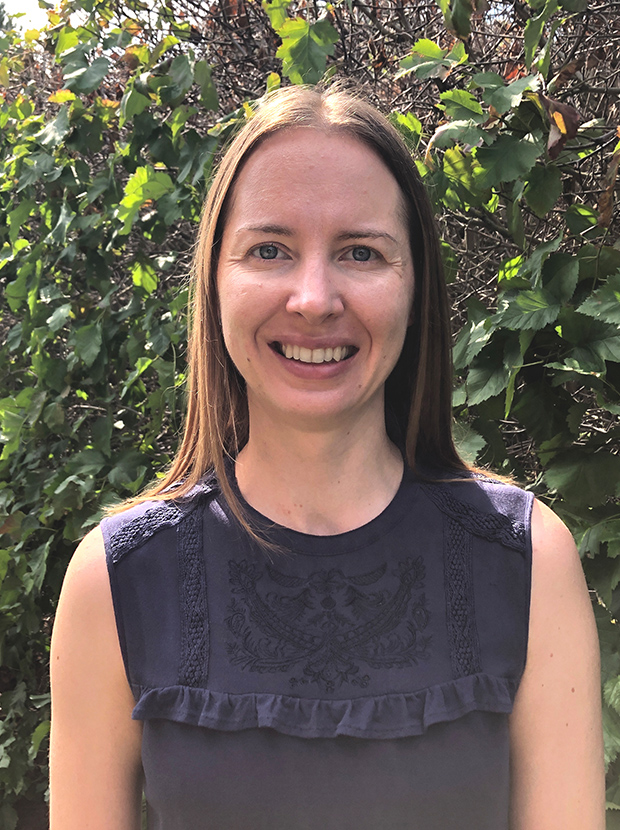
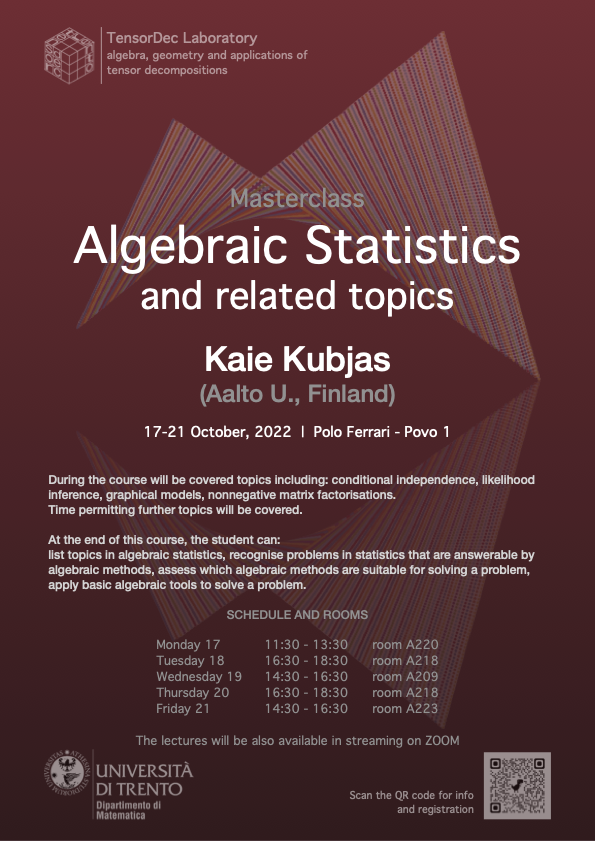
In this course, we will cover selected topics from algebraic statistics including:
- conditional independence,
- likelihood inference,
- graphical models,
- nonnegative matrix factorizations.
Time permitting further topics will be covered.
At the end of this course, the student can:
- list topics in algebraic statistics;
- recognize problems in statistics that are answerable by algebraic methods;
- assess which algebraic methods are suitable for solving a problem;
- apply basic algebraic tools to solve a problem.
Masterclass: Introduction to Algebraic Vision and Multifocal Tensors
by Kathlén Kohn (KTH Stockholm, Sweden)
Povo 1 (Polo Ferrari), Trento
9-13 October 2023, five lectures, two hours each day
Schedule and rooms: (the indicated time is the local one in Trento: CET (Central European Time))
Monday 9, 11:30 - 13:30 | Room A220
Tuesday 10, 13:30 - 15:30 | Room A110
Wednesday 11, 12:30 - 14:30 | Room A219
Thursday 12, 13:30 - 15:30 | Room A108
Friday 13, 09:30 - 11:30 | Room A218
Registration Form. link
The registration is free, but highly reccommended in order to facilitate communications of information and ZOOM links before and during the masterclass.
Remote participation via ZOOM platform will be available. The link will be shared to the registered participants.
Algebraic Vision is the amalgamation of Algebraic Geometry and Computer Vision. The reconstruction of 3D scenes from 2D images is a classical task in computer vision. We explore the inherent geometric structures of this task and the algebraic methods that are employed in state-of-the-art solvers. At the heart of this are finite rational maps, multifocal tensors, and Euclidean distance minimization over multiview varieties.
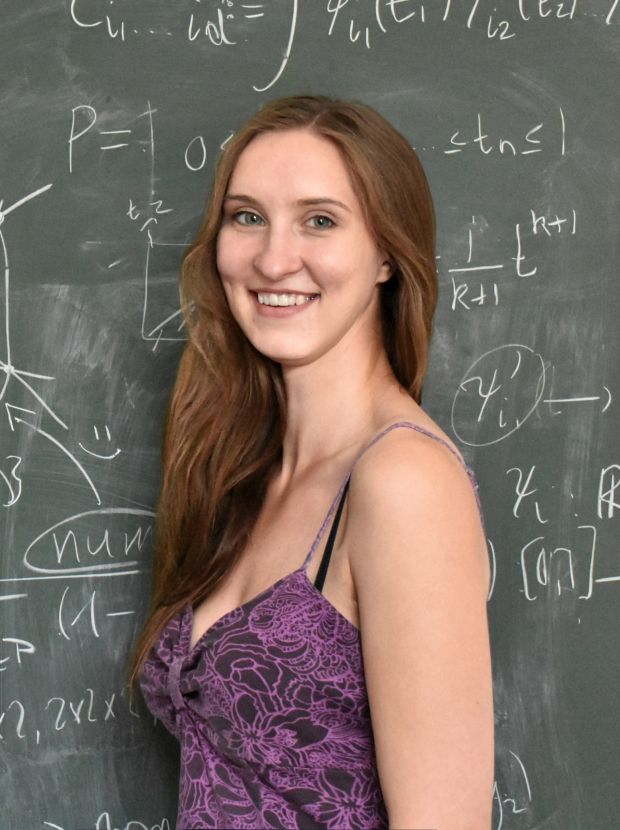
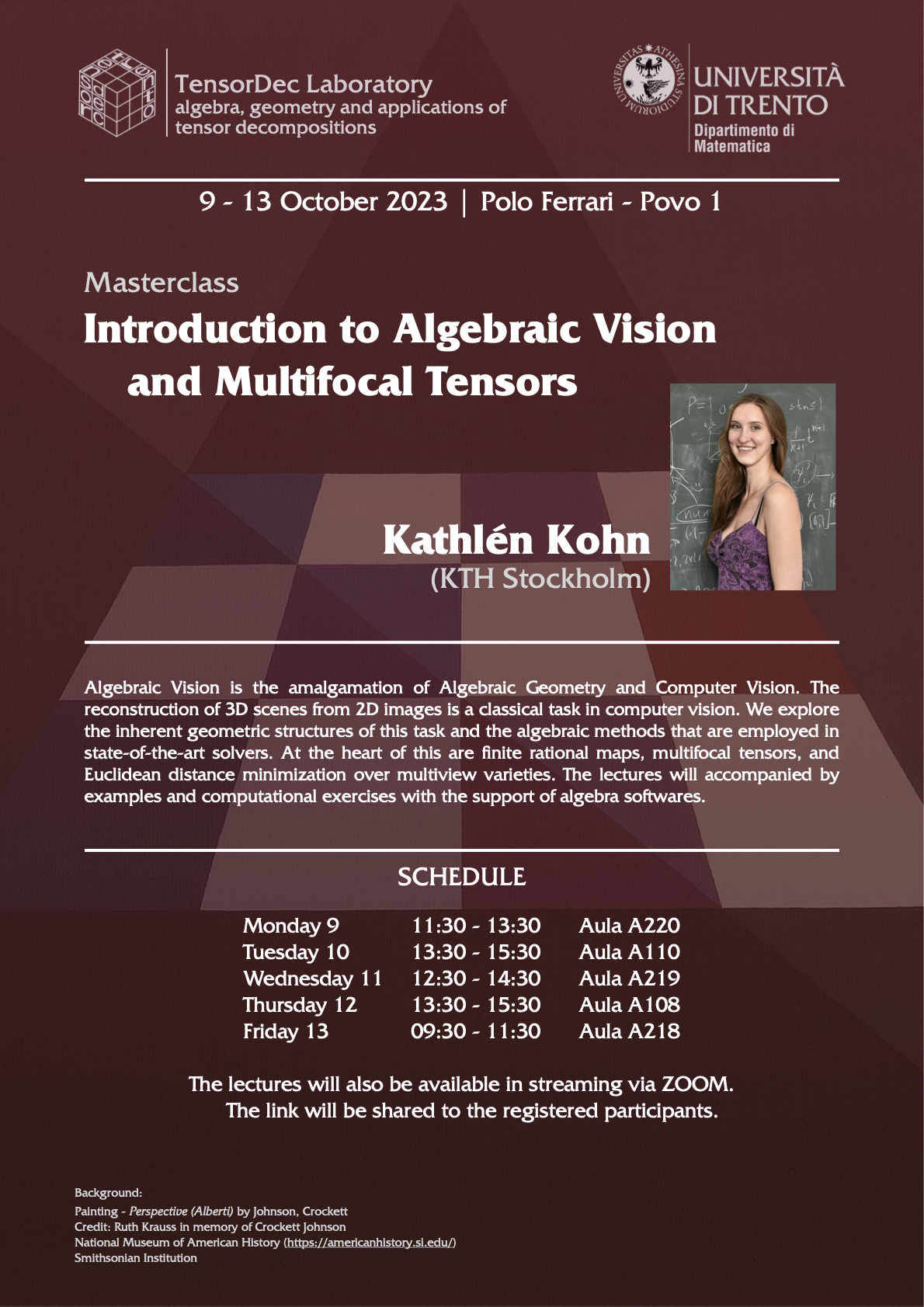
Secure Communication in the Digital Age: Exploring the Synergy between Cryptography, Algebra, and Industrial Mathematics
by Blended Intensive Programmes (BIP) Erasmus+
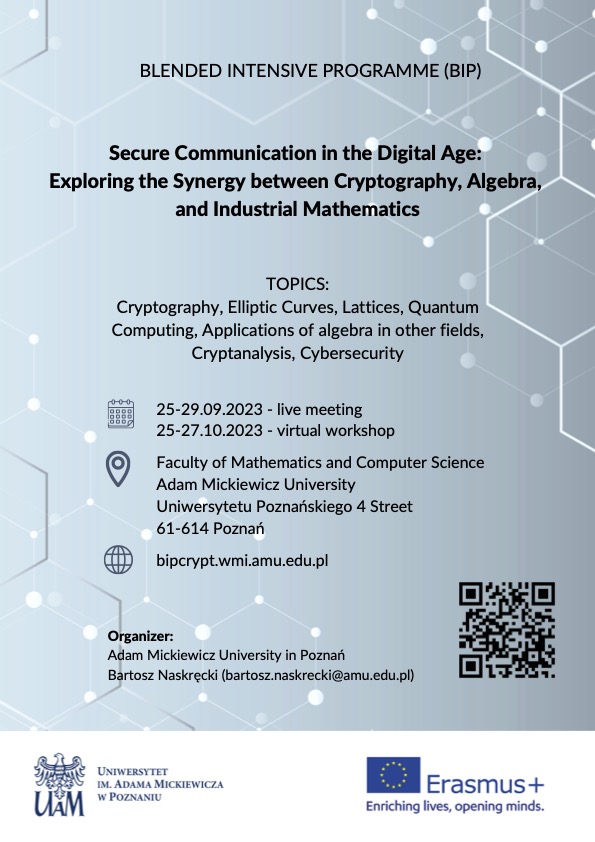
Dates:
- In-person meeting at Adam Mickiewicz University in Poznań, Poland in the week 25.09 - 29.09.2023.
- In the period of 30.09 - 24.10.2023 students will be engaged with preparation of the projects.
- The final 3-day virtual workshop will take place during the period 25.10-27.10.2023.
Topics:
Cryptography, Elliptic Curves, Lattices, Quantum Computing, Applications of algebra in other fields, Cryptanalysis, Cybersecurity.
Target students:
Master level students with broad interest in modern development in algebra, algebraic geometry, computer cryptography, quantum computing and applications to applied and industrial mathematics.
Visit the website for more details: https://bipcrypt.wmi.amu.edu.pl/#
The interested students are invited to send by June 15 a manifestation of interest to stage.dipmat@unitn.it with a motivation letter and the list of successfully passed exams.
Students may refer to this web page https://international.unitn.it/outgoing/eciu-university-challenges-and-micro-modules-0
The sections students can refer to are documents, economic support and recognition. They will receive the grant after the mobility.
Initiative supported by Math Department with the TensordDec Laboratory.
Reference Professor for the initiative: Alessandra Bernardi.
Industrial & Public AI Challenge: apply Artificial Intelligence techniques
to real data provided by enterprises and public administrations
by Fondazione Hub Innovazione Trentino (HIT)

Applications are now open for the Industrial & Public AI Challenge, the new innovation contest by Fondazione Hub Innovazione Trentino (HIT) and the University of Trento. The initiative targets university students, recent graduates and PhD students interested in working on improving decision-making and operational processes through the application of Artificial Intelligence solutions.
During the Challenge, starting in September and running until December 2023, teams of students from different departments of the University of Trento will work with the support of researchers and startups on solving optimization or problem-solving challenges in one or more production processes (Industrial AI Challenge), or on optimizing processes and event forecasting that affect the organization and delivery of public services, for those who choose to work on challenges brought by the Public Administration (Public AI Challenge).
Solvers will apply Data Science and Machine Learning techniques to datasets supplied by enterprises and PA to create predictive models and data-driven solutions to public and industrial Challenges related to, for example, automated product quality control, predictive maintenance, production planning optimization, and supply chain optimization.
Interested students should apply by filling out this form by June 30, 2023.
All info about the challenge and how to apply, included a video of presentation of the challenge by Nicola Doppio (HIT): link.
For more information write to us at: ai-challenge@trentinoinnovation.eu
The Industrial AI Challenge is an initiative organized by Fondazione Hub Innovazione Trentino (HIT) , in collaboration with the University of Trento , FBK - Fondazione Bruno Kessler, Trentino Sviluppo , Confindustria Trento , DIH - Digital Innovation Hub Trentino Alto-Adige / Südtirol and PAT - Autonomous Province of Trento.
Education
Courses
Tensor Decomposition for Big Data Analysis
by A. Bernardi
Master level course in Data Science, Mathematics and Statistics
for Life and Social Sciences, Mathematics for Life and Data
Sciences.
An introduction to big data science from tensor decompositons perspective.
Geometry and Topology for Data Analysis
by A. Oneto
Master level course in Data Science, Mathematics and Statistics
for Life and Social Sciences, Mathematics for Life and Data
Sciences.
A first course in algebraic topology, numerical algebraic geometry, with a view towards applications in data analysis.
Masterclasses
We organize every year at least one masterclass to offer our students: a short and intense introduction on state-of-the-art topics within the area of applications of algebra and geometry. The lectures are given by an international expert invited by the lab.
2023, October 9-13. Introduction to Algebraic Vision and Multifocal Tensors, by Kathlén Kohn (KTH Stockholm, Sweden)
2022, October 17-21. Algebraic Statistics and related topics, by Kaie Kubjas (Aalto U.)
2021, November 8-17. Tensor Decomposition and their applications, by Nick Vannieuwenhoven (KU Leuven)
Check here for more details.
Lab's Activities
TensorDec Lab Seminars
We periodically organize seminars that are aimed not only to our colleagues researchers but also to master and PhD students. Here the page dedicated to past and future seminars.
Check here past and future schedule.
Masterclasses
We organize every year at least one masterclass to offer our students a short and intense introduction on state-of-the-art
topics within the area of applications of algebra and geometry. The lectures are given by an international expert invited by
the lab.
Check here past and future schedule.
External Activities
Seminars
Applied Algebraic Geometry Seminar
Joint cycle of Seminars between Bologna, Ferrara, Firenze, Siena, Trento, Torino on Applied Algebraic Geometry in particular on arguments related to tensor decompositions. The seminars are held between Bologna e Firenze, every three weeks.
Organisers: A. Bernardi, E. Carlini, G. Casnati, L. Chiantini, C. Flavi, A. Gimigliano, M. Mella, G. Ottaviani
Information, Algebra and Geometry Workgroup
Since 2016, some of the members of tha Lab helped to co-organize a cycle of interdisciplinary meetings at the University of Trento in which we try to lay the foundations for a common language between Geometry, Algebra and Physics starting from Quantum Information.
Organizers: A. Bernardi, I. Carusotto, F. Pederiva, F. Hauke
Conferences and Workshops
Levico Terme, 26-28 July 2021
Tensor Networks: Quantum Physics, Geometry and Applications
The goal of the workshop is to develop the connections between the mathematics and physics communities working on tensor network. It is aimed at researchers from both areas that are active on the topic, from experienced PhD students over postdocs to permanent faculty. As a key novelty, it will be a hands-on event with a limited number of talks and several sessions of active work. During these sessions, participants will distribute themselves in small groups and will actively work on a specific cutting-edge research problem. Each problem will be proposed by a world expert who will be in charge of directing the activities of the group.Thus, we hope to foster strong scientific collaborations that last well beyond the workshop.
Organizers:A. Bernardi, I. Carusotto, P. Hauke
For Students
Industrial AI Challenge
by HIT - Hub Innovazione Trentino Fondazione
Every year, HIT organize an Industrial AI Challenge: innovation contest that allows students from the University of Trento with different backgrounds to form teams and work
in touch with manufacturing companies between September and December to find ways to exploit existing datasets about industrial production processes
and machinery with artificial intelligence techniques, including machine learning. Goal of the contest will be to deliver advanced statistics, predictive
models, and guidelines for companies to better collect and exploit data to support business decisions (e.g. predictive maintenance, optimization of logistics).
Students will be supported by academic and business mentors (AI startups from Trentino).
All info about the challenge and how to apply, included a video of presentation of the challenge by Nicola Doppio (HIT): link.
Secure Communication in the Digital Age: Exploring the Synergy between Cryptography, Algebra, and Industrial Mathematics
by Blended Intensive Programmes (BIP) Erasmus+

Dates:
- In-person meeting at Adam Mickiewicz University in Poznań, Poland in the week 25.09 - 29.09.2023.
- In the period of 30.09 - 24.10.2023 students will be engaged with preparation of the projects.
- The final 3-day virtual workshop will take place during the period 25.10-27.10.2023.
Topics:
Cryptography, Elliptic Curves, Lattices, Quantum Computing, Applications of algebra in other fields, Cryptanalysis, Cybersecurity.
Target students:
Master level students with broad interest in modern development in algebra, algebraic geometry, computer cryptography, quantum computing and applications to applied and industrial mathematics.
Visit the website for more details: https://bipcrypt.wmi.amu.edu.pl/#
The interested students are invited to send by June 15 a manifestation of interest to stage.dipmat@unitn.it with a motivation letter and the list of successfully passed exams.
Students may refer to this web page https://international.unitn.it/outgoing/eciu-university-challenges-and-micro-modules-0
The sections students can refer to are documents, economic support and recognition. They will receive the grant after the mobility.
Initiative supported by Math Department with the TensordDec Laboratory.
Reference Professor for the initiative: Alessandra Bernardi.
TensorDay
21 November 2023, Polo Ferrari - Povo1, room A212
An event to inaugurate the academic year in which the Lab welcomes bachelor, master and graduate students, as well as all interested colleagues, into the world of Tensor Decompositions, through a series of contributions by members of the lab, academic and industrial partners and former students.
09.00 - 09.15
Welcome and Opening
09.15 - 10.00
Research Group Presentation
The members will present the research lines pursued within the Lab.
10.00 - 11.00
Simon Telen (MPI MiS Leipzig, DE)
Tensors, polynomials and applications
Abstract. Tensors are multidimensional arrays. They are useful in many applications. I will discuss tensors and their associated geometric objects from the point of view of computational algebraic geometry. I will show how they appear in algebraic statistics, and discuss how to decompose tensors using algebraic techniques. I will also show how tensor decomposition is used to solve polynomial equations.
Short Bio. Group Leader of the Numerical Nonlinear Algebra research group at the Max-Planck Institute for Mathematics in the Sciences in Leipzig; European Young Academy Fellow; Partner in TENORS: A Marie Skłodowska-Curie Doctoral Network for 2024-2027 joint with Trento's Math and Physics Dept.
11.00 - 11.15
Break
11.15 - 11.45
Martina Iannacito (KU Leuven, BE)
Discovering tensors: their challenges and applications
Abstract. Tensors, regarded as mathematical tools, have gained widespread utilization across diverse fields due to their practical advantages. In various disciplines, researchers employ tensor factorization techniques to tackle computationally challengin problems, examine large datasets, and formulate better descriptions of intricate phenomena.
In this presentation, following the evolution of my tensor studies, I will briefly introduce some classical tensor methods, focusing on an applicative problem where they find use, ranging from remote sensing to multilinear algebra and numerical simulation. Particular attention will be on understanding how and why a tensor technique is chosen, depending on the field and the problem to address. The talk aims to illustrate the benefits and drawbacks of these choices, which each discipline faces differently.
By elucidating these hurdles, the presentation seeks to provide insights into current research directions arising from real-world, computational or applied problems.
Short Bio. Postdoctoral researcher from the Electrical Engineering Department at KU Leuven and former master student of the TensorDec laboratory, with a thesis on biodiversity estimation using tensor decomposition.
11.45 - 12.15
Industrial Partners
Learn about potential traineeships and master thesis projects at:
BlueTensor (Trento, IT)
Equal1 (Dublin, IR)
12.15 - 12.30
Networking and Closing
TensorDec Lab Seminars
A.Y. 2023-2024
Working Group Meetings
A series of periodic meetings where some of us present some topic that they are studying to the rest of the group
Wednesday 29 May 2024
Sara Marziali (U. Siena)
Product of Tensors and Description of Networks
Wednesday 15 May 2024
Dario Antolini
Hadamard products of linear spaces and tropical geometry
Monday 6 May 2024
Pablo González-Mazòn
Center point theorem for polynomial superlevel sets
Thursday 2 May 2024
Maciej Gałązka
Border rank of monomials: an overview
Wednesday 3 April 2024
Asma Momal
Introduction to computer vision
Wednesday 20 March 2024
Alessandro Oneto
Tensors in Rigidity Theory and Cayley-Menger varieties
Wednesday 13 March 2024
Dario Antolini
Rigidity theory and low-rank matrix completion
Series: Geometry and Topology for Data Analysis
This series of seminars is part of the homonym master level course.
Thursday 24 May 2024 (Povo 1 / online)
Andrea Guidolin (KTH)
Methods for topological analysis of biological data
Thursday 23 May 2024 (Povo 1 / online)
Chiara Romanengo (CNR-IMATI)
Recognition and representation of curves and surfaces in digital models via the Hough transform
Thursday 16 May 2024 (Povo 1 / online)
Angelica Torres (MPI Leipzig)
Algebraic techniques in the Structure-from-Motion problem
Friday 3 May 2024 (Povo 1 / online)
Massimiliano Datres (UniTn/FBK)
Dimensionality Reduction: UMAP and applications, II
Thursday 2 May 2024 (Povo 1 / online)
Massimiliano Datres (UniTn/FBK)
Dimensionality Reduction: UMAP and applications, I
Wednesday 10 April 2024
Gilberto Bini (U. Palermo, Italy)
Grassmann Tensors
within the series GeomSem
Wednesday 29 November 2023
Alexander Taveira Blomenhofer (CWI Amsterdam, The Netherlands)
Nondefectivity of GL-invariant secant varieties
TensorDay 2023
Tuesday 21 november 2023
An event to inaugurate the academic year in which the Lab welcomes bachelor, master and graduate students, as well as all interested colleagues, into the world of Tensor Decompositions, through a series of interventions by members of the lab, academic and industrial partners and former students.
09.15 - 10.00
Research Group Presentation
The members presented the research lines pursued within the Lab.
10.00 - 11.00
Simon Telen (MPI MiS Leipzig, DE)
Tensors, polynomials and applications
11.15 - 11.45
Martina Iannacito (KU Leuven, BE)
Discovering tensors: their challenges and applications
11.45 - 12.15
Industrial Partners
BlueTensor (Trento, IT)
Equal1 (Dublin, IR)
A.Y. 2022-2023
Working Group Meetings
A series of periodic meetings where some of us present some topic that they are studying to the rest of the group
Wednesday 3 May 2023
Mima Stanojkovski
Studying p-groups via Pfaffians
Wednesday 12 April 2023
Vincenzo Galgano
Equivariant Euler characteristic on Permutohedral Varieties
Wednesday 29 March 2023
Alessandro Oneto
Waring decompositions of special ternary forms with different Hilbert functions
Wednesday 15 March 2023
Tomasz Mańdziuk
Limits of saturated ideals
Wednesday 1 March 2023
Valentina Amitrano
Explicit tensor formalism for Quantum Computing
Tuesday 14 February 2023
Alex Casarotti
Identifiability of sums of powers
Friday 20 January 2023
Vincenzo Galgano
Identifiability and singular locus of secant varieties to Grassmannians
Tuesday 7 February 2023
Cosimo Flavi (U. Firenze, Italy)
Ranks of powers of quadratic forms
Series: Geometry and Topology for Data Analysis
This series of seminars is part of the homonym master level course.
Thursday 27 April 2023 (Povo1)
Monica Moroni (FBK)
Dimensionality Reduction: UMAP and applications, I
Wednesday 3 May 2023
Orlando Marigliano (KTH Stockholm)
Algebraic Statistical Models
Thursday 4 May 2023
Timhoty Duff (U. Washington)
Solving camera relative pose problems with homotopy continuation
Wednesday 10 May 2023
Monica Moroni (FBK)
Dimensionality Reduction: UMAP and applications, II
Thursday 11 May 2023
Sara Scaramuccia (U. Roma Tor Vergata)
Data Classification via Persistent Homology
within the series Mathematics for Data Science, Artificial Intelligence and Machine Learning
Wednesday 30 November 2022
Neriman Tokcan (Broad Institute of MIT & Harvard)
Non-negative consensus tensor factorization and applications in genomics
within the series MathBites Trento
Tuesday 22 November 2022
Marta Casanellas (UPC Barcelona)
Phylogenetics from an algebraic perspective
A.Y. 2021-2022
Thursday 19 May 2022
Daniele Taufer (CISPA Helmotz Center, Saarbrücken)
An invitation to computational and symbolic algebra
Series: Geometry and Topology for Data Analysis
This series of seminars is part of the homonym master level course.
Wednesday 11 May 2022
Marina Garrote-López (U. Alaska Fairbanks)
Algebraic degrees of phylogenetic varieties
Thursday 12 May 2022
Ulderico Fugacci (CNR-IMATI Genova)
Persistent homology for shape comparison
Thursday 19 May 2022
Nicole Bussola (OROBIX Life, Bergamo)
Topological applications for pattern discovery in precision medicine
Wednesday 25 May 2022
Paul Braiding (U. Osnabrück)
Numerical Algebraic Geometry
Thursday 26 May 2022
Martina Scolamiero (KTH Stockholm)
Topological data analysis methods for neuroscience
within the series Mathematics for Data Science, Artificial Intelligence and Machine Learning
Wednesday 20 April 2022
Daniele Castellana (U. Pisa)
A Tensor Framework for Learning in Structured Domains
video
A.Y. 2020-2021
Online PhD seminar
Our graduate students collected all Italian graduate students on
topics related to tensor decompositions in a weekly cycle of online seminars where graduate
students have the possibility to share their latest discoveries or
the problems they are currently studying in front of the senior
members of the Italian community.
Organizers: C. Delazzari, V. Galgano, P. Santarsiero, R. Staffolani
Masterclasses
Trento, 9-13 October 2023.
Held by K. Kohn (KTH Stockholm, Sweden).
Algebraic Vision is the amalgamation of Algebraic Geometry and Computer Vision. The reconstruction of 3D scenes from 2D images is a classical task in computer vision. We explore the inherent geometric structures of this task and the algebraic methods that are employed in state-of-the-art solvers. At the heart of this are finite rational maps, multifocal tensors, and Euclidean distance minimization over multiview varieties.
Trento, 17-21 October 2022.
Held by K. Kubjas (Aalto U., Finland).
In this course, we will cover selected topics from algebraic statistics including conditional independence
likelihood inference, graphical models, nonnegative matrix factorizations.
Time permitting further topics will be covered.
At the end of this course, the student can:
- list topics in algebraic statistics
- recognize problems in statistics that are answerable by algebraic methods
- assess which algebraic methods are suitable for solving a problem
- apply basic algebraic tools to solve a problem.
Trento, 8-17 November 2021.
Held by N. Vannieuwenhoven (KU Leuven, Belgium).
Multidimensional datasets, in which data can vary in more than two directions, became popular over the past
two decades as computational and storage resources increased along with algorithmic innovations for the
processing of such data. Multidimensional data poses several challenges, ranging from their interpretation
and the extraction of meaningful insights from them, their processing and visualisation, and their storage
and archiving. In this Masterclass, we will study tensor decompositions, which are algorithmic techniques designed to
tackle the foregoing challenges. Tensor decompositions extend the idea of matrix decompositions
(like singular value decomposition, principal component analysis, and nonnegative matrix factorization)
as instruments for the analysis of data that varies in only two directions to more directions.
The slides of the course can be found here.
Research Interests
We collect here some of the main research lines of the group with some recent literature. Other topics that we have been recently discussing can be found in the series of Working Group Meetings whose titles are listed within the Lab Seminars.
This page has to be considered as work in progress, if you want to know more let us know!
Additive decompositions of polynomials and identifiability of Gaussian mixture models
The moments of Gaussian mixture models are higher degree polynomials that can be represented as polynomials in the linear forms associated to the mean vectors and the quadrics defined by the covariance matrices. The study of such additive decompositions can be used to find theoretical and algorithmic results about such algebraic statistical models. In the particular case of centered Gaussian mixture models, such decompositions are sums of powers of quadrics.
Recent literature:
- Blomenhofer, Alexander Taveira, et al. "Identifiability for mixtures of centered Gaussians and sums of powers of quadratics." Bull. of LMS, to appear (2023).
- Casarotti, Alex, and Elisa Postinghel. "Waring identifiability for powers of forms via degenerations." arXiv preprint arXiv:2301.05276 (2023).
Defectivity of Segre-Veronese varieties
A classical question in algebraic geometry regards the classification of defective varieties, i.e., varieties whose secant varieties have dimension smaller than the expected. In the last decades, this question regained a lot of attention thanks to the Alexander-Hirschowitz Theorem (1995) which completely classified Veronese varieties and the relation with tensor decompositions, indeed, secant varieties of Veronese, Segre and Segre-Veronese varieties are parametrized by tensors of bounded rank. A challenging question is to extend the classification of defective varieties to the latter families of varieties.
Recent literature:
- Ballico, Edoardo, Alessandra Bernardi, and Maria Virginia Catalisano. "Higher Secant Varieties of Pn x P1 Embedded in bi-degree (a,b)." Communications in algebra 40.10 (2012): 3822-3840.
- Bernardi, Alessandra, et al. "The Hitchhiker guide to: Secant varieties and tensor decomposition." Mathematics 6.12 (2018): 314.
- Galuppi, Francesco, and Alessandro Oneto. "Secant non-defectivity via collisions of fat points." Advances in Mathematics 409 (2022): 108657.
- Laface, Antonio, and Elisa Postinghel. "Secant varieties of Segre-Veronese embeddings of." Mathematische Annalen 356.4 (2013): 1455-1470.
Hadamard products of Tensors and Restricted Boltzmann Machines
Restricted Boltzmann Machines are graphical statistical models whose joint probability distributions correspond to Hadamard products, i.e., coefficient-wise products, of sums of rank-one tensors. Even if they are a natural generalization of the classical tensor rank decomposition, from the point of view of algebraic statistics these models started to be studied only recently.
Recent literature:
- Montúfar, G. (2018). Restricted boltzmann machines: Introduction and review. In Information Geometry and Its Applications: On the Occasion of Shun-ichi Amari's 80th Birthday, IGAIA IV Liblice, Czech Republic, June 2016 (pp. 75-115). Springer International Publishing.
- Cueto, María Angélica, Jason Morton, and Bernd Sturmfels. "Geometry of the restricted Boltzmann machine." Algebraic methods in statistics and probability II 516 (2010): 135-153.
- Oneto, A. and Vannieuwenhoven, N. "Hadamard-Hitchcock Decompositions of Tensors", in preparation.
Strassen's additivity of the tensor rank
It is an interesting question to determine whether the rank of the sum of two tensors in independent vector spaces equals the sum of their individual ranks. A positive answer was previously known as Strassen's conjecture until Shitov showed that counterexamples exist, asymptotically, for very large tensor spaces. On the other hands additivity holds for small three-factor tensors and, under certain conditions in the symmetric case and for monomials.
Recent literature:
- Buczynski, J.; Postinghel, E.; Rupniewski, F., "On Strassen's rank additivity for small three-way tensors" On Strassen's rank additivity for small three-way tensors". SIAM J. Matrix Anal. Appl. 41 (2020), no. 1, 106-133
- Carlini, E.; Catalisano, M. V.; Geramita, A. V., "The solution to the Waring problem for monomials and the sum of coprime monomials". J. Algebra 370 (2012), 5-14.
- Carlini, E.; Catalisano, M. V.; Oneto, A., "Waring loci and the Strassen conjecture". Adv. Math. 314 (2017), 630-662.
- Shitov, Y., "Counterexamples to Strassen's direct sum conjecture", Acta Math. 222 (2019), no. 2, 363-379.
Studying p-groups via their intrinsic geometry
Finite groups are understood externally via their simple composition factors (Jordan-Hoelder) and internally via their Sylow p-subgroup (thanks to Sylow theory). Though the classification of finite simple groups is now complete, the classification of finite p-groups is far out of reach. In the study of general questions about finite p-groups it is frequently beneficial to focus on groups in natural families. Often, this yields additional geometric information, as for instance algebraic varieties (such as Pfaffians) attached to the natural tensor structure. This is helpful in the determination of group invariants like the number of conjugacy classes, faithful dimensions, automorphism group sizes, and the number of immediate descendants.
Recent literature:
- Marcus du Sautoy and Michael Vaughan-Lee. "Non-PORC behaviour of a class of descendant p-groups." Journal of Algebra 361:287-312, 2012.
- Eamonn O'Brien and Christoper Voll. "Enumerating classes and characters of p-groups." Transactions of the American Mathematical Society 367(11):7775-7796, 2015.
- Mohammad Bardestani, Keivan Mallahi-Karai, and Hadi Salmasian. "Kirillov's orbit method and polynomiality of the faithful dimension of p-groups." Compositio Mathematica, 155(8):1618-1654, 2019.
- Mima Stanojkovski and Christopher Voll. "Hessian matrices, automorphisms of p-groups. and torsion points of elliptic curves." Mathematische Annalen 381, 593-629 (2021).
- Tobias Rossmann and Christopher Voll. "Groups, graphs, and hypergraphs: average sizes of kernels of generic matrices with support constraints." arXiv preprint arXiv:1908.09589 (2019), to appear in Memoirs of the American Mathematical Society.
- Tobias Rossmann. "On the enumeration of orbits of unipotent groups over finite fields." arXiv preprint arXiv:2208.04646 (2022)
- Joshua Maglione and Mima Stanojkovski. "Smooth cuboids in group theory." arXiv preprint arXiv:2212.03941 (2022)

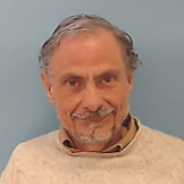 Full Professor
Full Professor
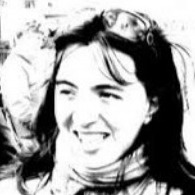 Associate Professor
Associate Professor
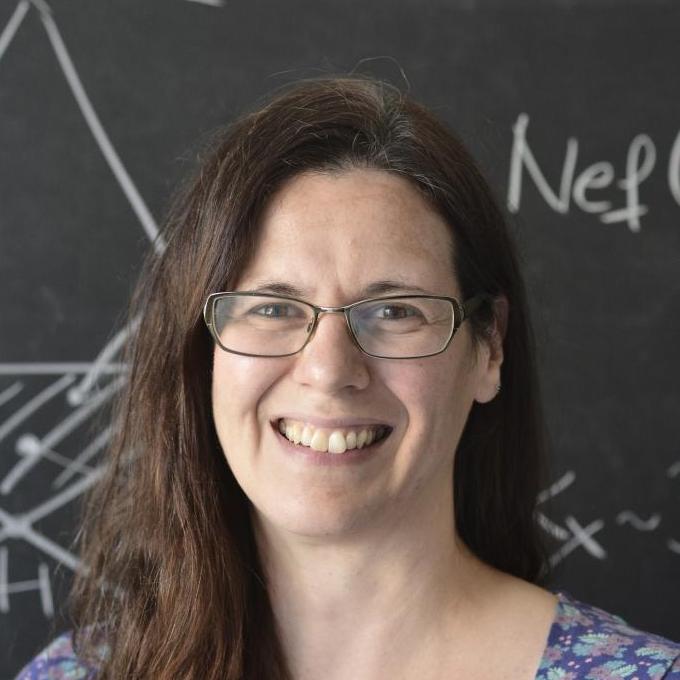 Associate Professor
Associate Professor
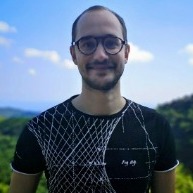 Associate Professor
Associate Professor
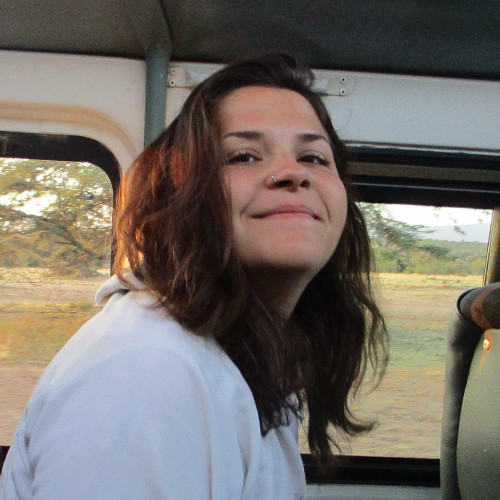 Assistant Professor (RTD-b)
Assistant Professor (RTD-b)











